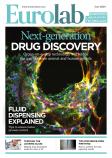Automata, a leading robotics and automation company powering life sciences labs, has announced it is partnering with bit.bio, to automate a key aspect of the manufacturing process of their iPSC (induced pluripotent stem cell)-derived human cell products.
bit.bio’s precision cellular reprogramming technology opti-ox is ideally suited for automation because it enables unprecedented consistency and scalability for the manufacture of human cells from iPSCs.
The solution makes use of Automata’s expertise in lab automation at scale. It is custom designed for a crucial step in bit.bio’s production of its precision reprogrammed human cells and will streamline this step through automation, turning it into a consistent, standardised process. It will free up scientists’ time, reduce human errors and increase batch to batch reliability.
This first step in automation will increase bit.bio’s capacity to manufacture human cell products for research and drug discovery by quadrupling manufacturing output and supports bit.bio’s lean manufacturing approach. It will increase the speed at which bit.bio can deliver products to market and support its rapidly expanding portfolio of human cells and disease models. Once validated, the aim is to expand automation to the GMP-grade production of cell therapy products. Together with this partnership bit.bio and Automata are moving further towards the fully automated lab of the future.
Dr Mark Kotter, founder and CEO, bit.bio comments: “As we continue to expand as a company, we are always looking for ways to streamline our processes. This year is our most ambitious yet and we are launching multiple new cell types and disease models so it’s essential we increase our manufacturing capacity. Being a fast-growing company means we are able to work quickly and effectively with other fast-growing companies on novel solutions. We are excited to be partnering with Automata and will continue to look for novel ways to automate our workflows and build towards a lab of the future.”
Mostafa ElSayed, CEO and co-founder, Automata adds: “We’re extremely proud to be partnering with pioneer bit.bio to demonstrate how our technology can help in its development of consistent and scalable human cells. With automation, scientists will work smarter by running more processes with greater adaptability and higher quality data, and focus on the next great advances in human health.”








